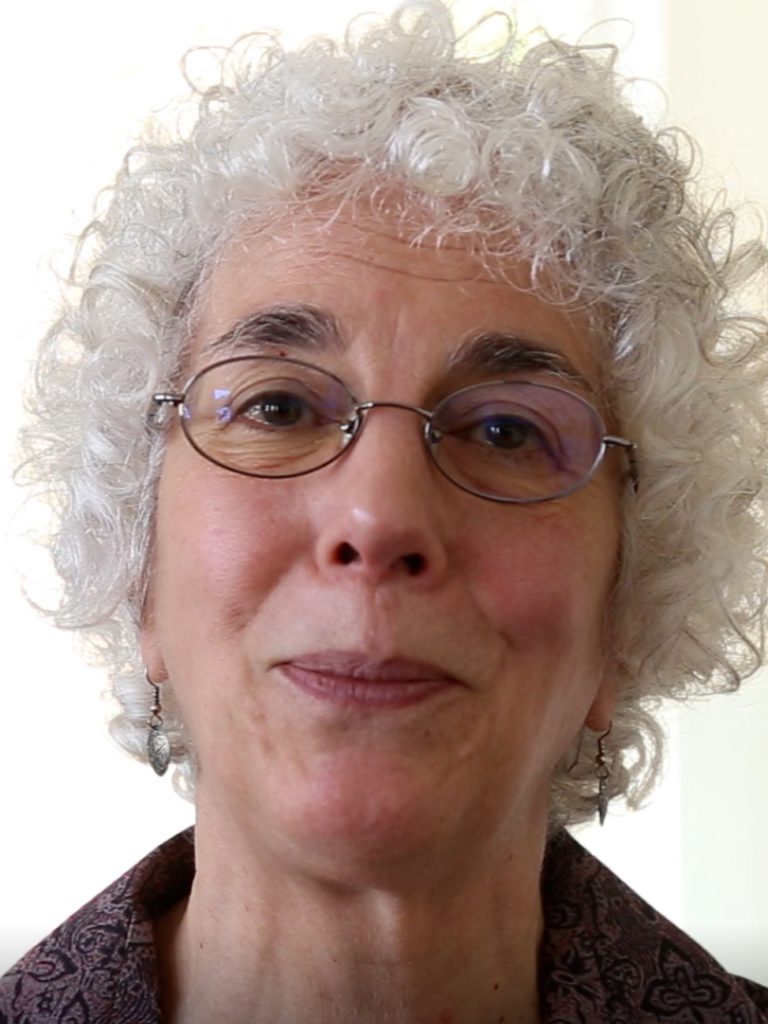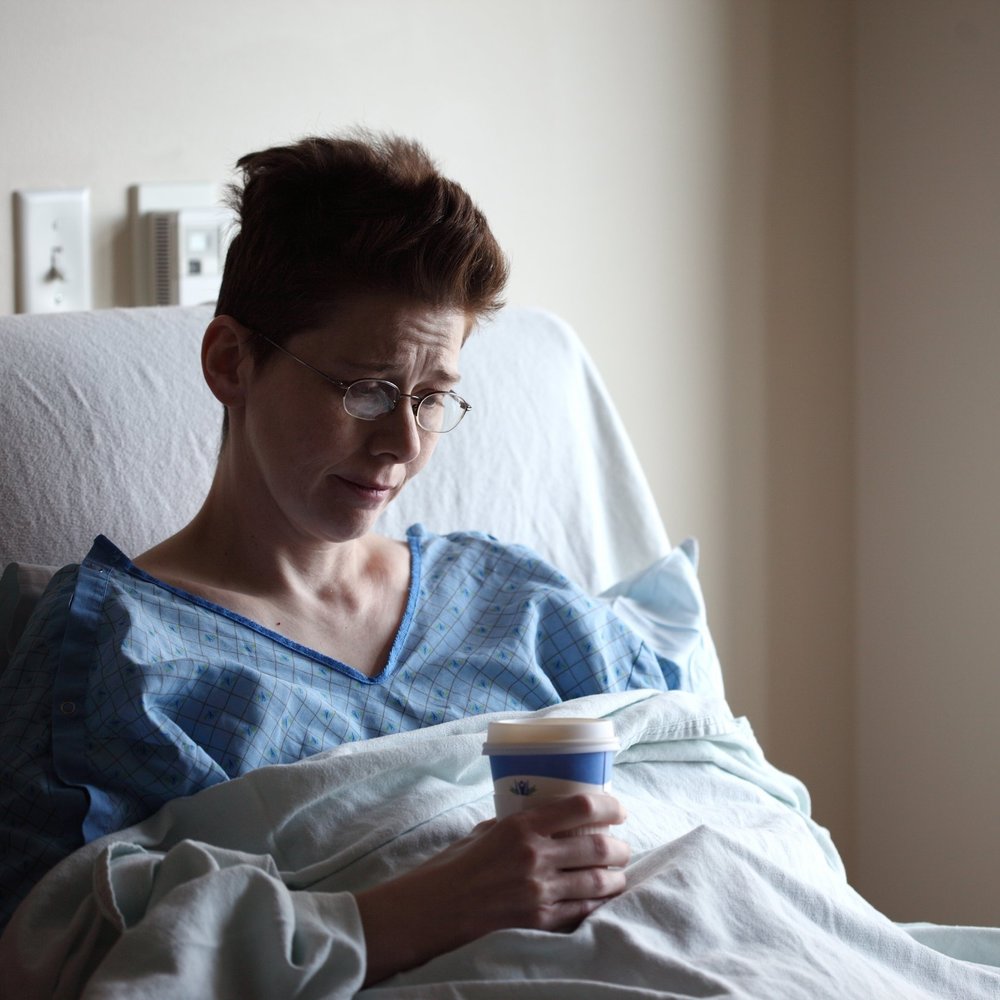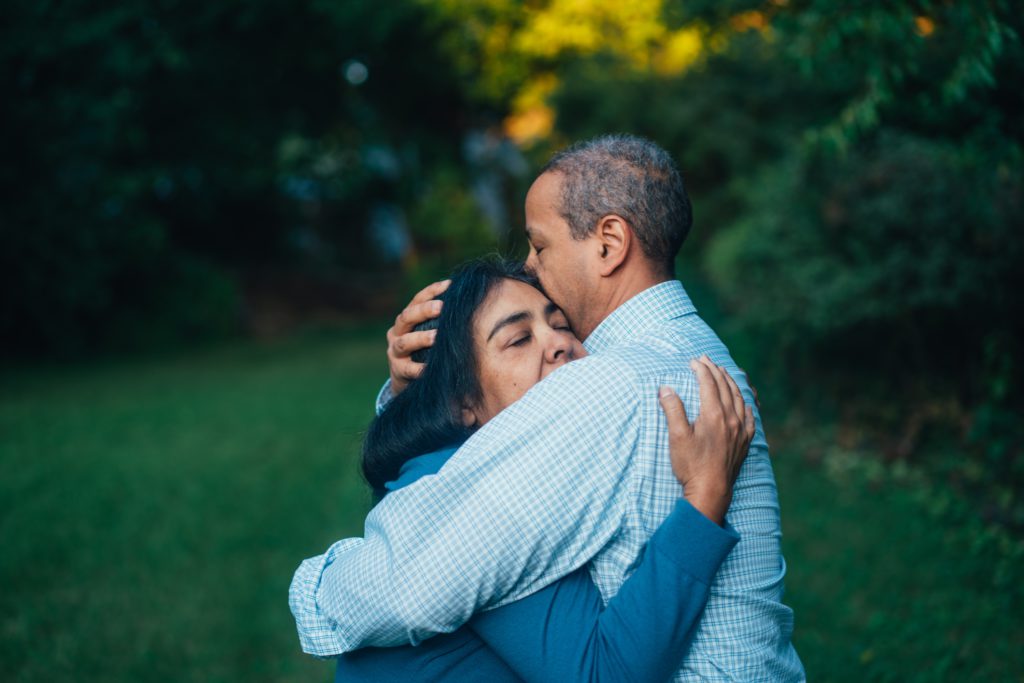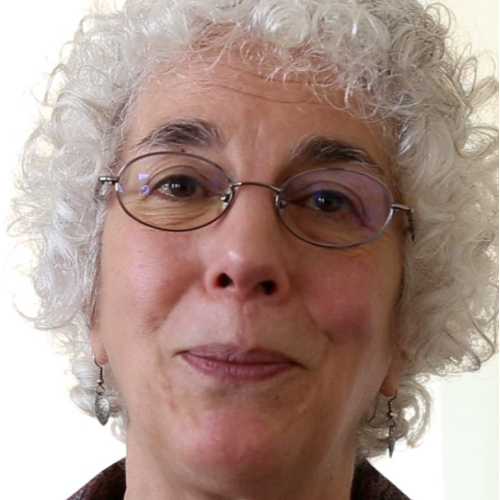Caregiver Expert & Author, Barbara Kivowitz
There’s always something to be hopeful about no matter what condition you’re in. When you have your health, you can be hopeful about having any of your dreams come true.
Once your body fails you, you can rest your hope in your emotions. You can hope that you will still feel love and compassion for others and yourself. If your emotions become emptied, you still have your spirit.
You can hope to connect to something greater than yourself – something that has a light to shine on your shadows. When your spirit is gone, then you have already become something else, and who knows what hope awaits you there.
Barbara Kivowitz

- Barbara's Story on Video
- Expert Background
- Making Treatment Decisions
- Navigating New Relationship Dynamics
- Solutions & Things to Practice
- How can a caregiver remedy the feeling of needing to do everything
- Dealing with feeling lack of control
- Importance of focusing on the relationship between the patient and the caregiver
- How to maintain a connection during illness
- When is it time to ask for outside help
- What do you say to a patient who feels isolated
- Do caregivers ever feel that way
- How can a caregiver help if the patient doesn’t feel hopeful
- Message for patients and caregivers who might be struggling with a new diagnosis
This interview has been edited for clarity. This is not medical advice. Please consult with your healthcare provider for treatment decisions.
Barbara’s Story on Video
Expert Background
Introduction
I am clinical social worker, a healthcare innovation consultant, and an author. Out of my illness experience, becoming aware of how important my relationship with my husband is through that, and realizing there were no resources out there that helped us prepare for how illness affects the relationship between patient and caregiver, we did a lot of interviews and research, and we wrote a book.
It’s called “Love in the Time of Chronic Illness: How to Fight the Sickness – Not Each Other.” Writing the book and hearing all the honest stories of how people move through their illness journey was a transformative experience for me.
Perhaps the most important thing I learned is that illness takes so much from us, yet many of the people we spoke to said there’s nothing like the power and urgency of illness to cut through the noise and irrelevancies of every day life and illuminate for us what really matters.
Ultimately, what really matters is the people we love, being with them, and having compassion for them and ourselves. If there is a gift in illness, it’s a gift we have to search for sometimes, but it’s a powerful gift that can last a lifetime.
How you got started as a healthcare innovation consultant and author
I, like most people who fall into things, fell into this from my own personal experience. My “this” is deeply appreciating that when one goes through a serious illness experience, you’re never standing alone. You are surrounded by a social network. Usually, the person who is at the center of your network is your primary caregiver. For me, that was my husband.
When I went through my illness, I was stunned by how profound an impact it had on every aspect of our relationship. From the kitchen to the bathroom to the bedroom to the front steps – everything was affected.
Like a good intellectual, I started looking for material to research that would help me understand and maybe even provide a road map so that I would feel even a little bit of control over my experience. There was nothing.
As I was getting better, a colleague of mine and I decided that we were going to write a book that we wish we would’ve had during our illness experiences.We interviewed many patients, caregivers, couples, surviving partners, and experts from a whole range of disciplines to find out how illness affects the relationship between the patient and caregiver.
We wanted to know what they can do to be as strong and resilient as possible because a strong and resilient relationship foundation helps you get through hard times. So, we wanted to know what other couples and other patient caregivers did.

Healthcare providers should be family-centered
More recently, I’ve become very interested in what healthcare providers and hospitals can do to not just be patient-centered but to be family-centered. That doesn’t just mean knowing the names of everybody and shaking their hands when they walk in.
It means really seeing the focus of treatment as being the patient and the person or the people who are most Important to them. That’s where healthcare systems and providers can achieve – I believe – not just the best health outcomes but more enduring health outcomes.
How did your own experience affect your relationship
My experience, my health crisis came out of the blue. In about 2000, I got whacked with a mysterious chronic pain condition that took me out of life.
I couldn’t work, I couldn’t socialize, and I certainly couldn’t travel. I couldn’t hardly leave the house. My daily routine was to try to do anything to stay a step ahead of the pain. It was very dramatic.
Within a course of days, I went from being an active, athletic, thinking participant to being a sufferer. My husband went from being a partner to – not just my caregiver – my access point to the world. I disappeared, and he took on a huge responsibility.
It changed everything about how we were used to connected with each other. We used to, like many couples, take things for granted. We could take for granted that we could make plans for the weekend. We could take for granted that he would do the food shopping and I would do the cooking. We could postpone dealing with things.
That was no longer possible. What we found is that we were overwhelmed by the massiveness of the change.
For us, it was immediate and big. For most people who get the surprise of a nasty diagnosis, it may not seem that massive, but it is that massive in one’s own way.
What we found was we had to start talking about everything. We couldn’t take anything for granted. We had to talk about things we had never had to talk about before.
Illness is the jolt that knocked us out of our routines. It took us down to the bedrock of our connection. We couldn’t be distracted by the daily noise of things because other things were just too urgent and pressing.
We had to ask ourselves what really mattered. What matters is not that you come on time like you said you would. What matters is not that we go skiing this weekend. What matters is not, ‘Why do you always leave your socks in the living room, and why do I always pick them up?’
The annoyances do not matter.
What really matters – luckily what we found – was love. Love and compassion. I don’t think we would have appreciated that in as poignant and profound a way had it not been for the sledgehammer of illness.
Biggest surprise from talking to so many patients and caregivers
One of the biggest surprises was that many more people than I expected had a similar experience to ours. They said that they found levels of authentic communication, patience, and tolerance – a deep wellspring of love that they don’t think they would’ve been aware of if it hadn’t been for the illness.
That gift persists whether you get better or you continue to have to wrestle with the illness. Many people we interviewed where there had been a death, it persisted for the surviving partner afterward.
That was a gift they were able to carry with them into their future, and it provided great comfort.
Common themes you’ve seen between patients and caregivers
When we were interviewing for the book, we saw so many different kinds of combinations of patients and caregivers, but there are so many commonalities.
One of them is that their experiences of the illness are different. If they don’t realize that, they’re going to collide instead of connecting.
The patient may want quiet time, and the caregiver may want to problem solve. Say the patient goes into a room and closes the door for some time alone to think. The caregiver might see this as a danger signal, open the door, walk in and say, “Honey, what’s wrong? What can I do?” Then they collide.
Another one is that the roles change in the relationship. You go from equals to patient and caregiver. That can be a game changer. For some partners, that becomes so embedded and prolonged over time, they lose their adult intimate connection.
Whether that’s a couple or a mother and daughter, it mutates into just being patient and caregiver. You miss out on a lot. When the patient recovers, it becomes really hard to resurrect the connection.
Another issue is the protection racket where neither one wants to say anything that would hurt the other one. They assume that if they were to speak about what’s in their gut and their heart – to speak about their emotions, whether that’s fear or anger or frustration – that it might somehow cause harm or break things.
What winds up happening is each person is roiling with their own inner experience and not talking about it. What they wind up talking about ends up being more superficial and their connection is a little more fragile when they really need each other the most.
Making Treatment Decisions
What happens when a patient and caregiver disagree on a course of treatment?
Ultimately, it’s the patient’s body, so that person is the decider about what treatment directions to take and whether to continue or not.
That’s very hard for the caregiver – almost impossible. More than anything, they want to make it better. They want to save the patient.
If they’re making choices they don’t agree with or they don’t think are the kinds that put you on the path to getting better, that’s an almost unendurable dilemma for them.
They know that they have to respect that it’s the patient’s body, choices, and life. At the same time, they want them to do it their way. That can be a really head-butting, endless loop. It’s important to recognize when that loop gets activated.
Take a breath, and instead of trying to persuade and convince, ask and listen. Ask each other what’s going on and try to listen with as much of that foundational compassion that you can muster. Ask questions for the purpose of understanding, not necessarily changing each other’s minds.
How can a caregiver voice their concerns to a doctor
It’s tricky because the doctor has an ethical and legal obligation to the patient and only the patient. However, the patient doesn’t stand alone. The patient is intertwined with the caregiver. Both perspectives are important.
Ideally, the doctor has gone through the many trainings that I offer and has ways to engage them both in ways that validates both their different perspectives.
If that doesn’t happen, also ideally, the patient and the caregiver have the kind of communication between them where the patient can say to the caregiver, “You seem like you’re thinking something. What’s going on?”
Someone has to offer an invitation to the caregiver. It’s very difficult for the caregiver to directly say, ‘I disagree.’
How important is it for patients and caregivers to stick together when it comes to dealing with the healthcare system?
The medical system is overwhelming. They’re trying as hard as they can. There are scarce resources, they’re overwhelmed, and the payment structure is crazy. The doctors, nurses, and clinicians are dedicated to doing everything they can do, but the system is very broken.
One of the ways it’s broken is that it’s segmented. You may have cancer and diabetes, and you may have to deal with two completely different stovepipes. Each stovepipe has its own systems and rules, and it’s bigger than one person can deal with. You have to work as a team.
You have to go to appointments together, do your homework beforehand, come up with your questions, and when you see your doctor, make sure each of you has your chance to ask your questions. Make sure that each of you understands the information and the implications of the information you’re getting.
Don’t feel pressured to make decisions on the spot. You may need time, you may need more information, and you might even want to consult another clinician.
In the moment, it can feel like you have to decide right now or else. Use each other and check in with each other. Ask, ‘Are we ready to take these next steps?’ Work as a team. Rely on each other’s areas of strength and combine them.

Because my pain condition was mysterious, I went to see all kinds of specialists. I went to see the chief of neurology at a major teaching hospital in Boston.
My husband was with me. He looked at my chart, looked at my scans, had me do a bunch of neurological movements, and he said, “Okay, now let’s do a spinal tap,” and I froze. It was one of those moments.
The chief of neurology is saying we have to do a spinal tap, and my husband said, ‘Can you give us just five minutes to talk about that?’
I never would’ve thought to say that – even though I’m assertive and a clinician, in the moment, we’re all mush. Because he was able to say that, I did not have an unneeded spinal tap.
Dealing with finances together
The time to deal with finances is yesterday. In the moment when illness hits, it’s so overwhelming. To put shaky finances in the mix, it’s almost unthinkable.
So, to the extent that you can, start talking about it and thinking about it now before illness hits – if illness has already hit, think about it now, in the beginning.
Call on whatever resources are available to you to help you sort things out and where there are government, state, or community resources that might be available to you.
Navigating New Relationship Dynamics
How is the experience different for the patient and caregiver
One of the big differences between the patient and the caregiver is that they’re experiencing the illness differently. It doesn’t mean the same thing.
For the patient, they’re experiencing it in their body. For them, it can be a profound existential crisis. They were one thing, they don’t know exactly who they are right now, and they don’t know who they’re going to be. The patient may need some quiet time to process these new forces in their life.
For the caregiver, the experience is very different. One of the people they love most is at risk. They are driven to problem solve. They want to make it better. They want to do. That can be a potential point of collision.
In addition, when the two of them show up for a doctor’s appointment together, the doctor will ask the patient how things are going. The patient, who often wants to present good news to the doctor, will say, “Since the last visit I’m doing pretty well. I’m sleeping, and the medication is working.”
Meanwhile, the caregiver may be sitting there looking to the side, staring at the ceiling, or bouncing their leg – indicating that there’s something different going on than what the patient is saying. Many doctors will ignore that.
Part of the work that I’m trying to do with the providers and the healthcare system is to teach them not to ignore that. That’s vital information.
If they were to ask the caregiver what the patient seems to be leaving out, the caregiver may say, “That’s not what’s going on. The patient is not sleeping. The patient was in much more pain this week and wasn’t taking the medication as prescribed.”
What’s going on there? Is one right and the other is wrong? No. Their experience of the illness is very different. What’s driving that experience is very different. The patient is experiencing it in their body.
The caregiver is experiencing it in their perspective, their vision, and in their sensing. They may be focusing on very different things, but both need attention, and both need to emerge in a treatment context so the doctor can have the full picture.
How can becoming a caregiver affect someone
You become invisible. You know that you’re doing so much. You know how terrified and potentially angry you are, yet you don’t necessarily share that because you feel like you have this job.
Your job is to just do everything. While you’re doing everything, you don’t get any notice, recognition, or appreciation. That makes the burden heavier. ”
They feel like they have this endless job description that’s 24/7. They feel like they have to do everything. That doesn’t only mean taking care of the person with the illness, which might mean hands-on care.
It also means they have to take care of the house, and they have to keep working and sometimes even harder because of lost income. They may have to take care of the children. They may have to deal with insurance headaches.
The caregiver often still feels like they’re not doing enough. There’s always more to be done. The focus becomes on doing.
Solutions & Things to Practice
How can a caregiver remedy the feeling of needing to do everything
What I would suggest is that they have another “job.” Not just doing, I would suggest they dedicate some time for being as well. Being means literally that.
It means just being by the side of your beloved in the moment. Doing nothing practical and breathing together and holding hands. Talk about how you’re each feeling.
The being will ultimately be what really matters. It won’t matter what you got done; it won’t matter if you got the laundry done. It will matter if you spent those hours or days by their side having elevated or low or silly or significant conversations.
Part of what fuels the endlessness of the doing are emotions. These are often emotions the caregiver feels he or she can’t express because if there were words attached to them, they might say, ‘I’m afraid. I don’t want to lose you. I don’t know what to do.’
All these things feel like they’re forbidden, and they can’t be said out loud, so they’re converted into fuel for continuing to do good deeds.
That’s endless. The benefit of just being is it gives those feelings a place to settle. Even if they’re never expressed, it still gives them a quiet moment to rest instead of churning. ”
Dealing with feeling lack of control
Control is an interesting issue in the context of illness. It has many different manifestations. On a very deep level, both people feel completely out of control.
From the moment you get the phone call, or you hear the words out of the doctor’s mouth, you feel like you’ve lost control over your lives. The predictable path that you assumed that you would have is taken from you by illness. Both people feel like they’ve lost control.
So, what do you do when you feel like you’ve lost control? You try and get it back by squeezing tightly on things that don’t really provide the kind of outlet you need. A big part of illness and coping with illness is learning what you do and don’t have control over.
Importance of focusing on the relationship between the patient and the caregiver
It’s that relationship that sustains the patient and the caregiver before the appointment with the doctor and then when they go home. When they go home, it’s so easy for illness, who has a very loud voice and a demanding personality, to take over and to make the decisions for the partners. It’s easy for the patient and caregiver to abdicate their authority and potential to the demands of the illness.
What mitigates that is the power of their relationship. It’s hard for either one to stand alone and tell illness to back off, but the two of them together digging into what really matters is a wellspring that can get people through. It’s one of the two things that can get people through really dark times.
The other thing is one’s own personal resilience and capacity for hope and belief. When you have one person’s hope and capacity for resilience and combine them with the other’s, you’re multiplying it.
How to maintain a connection during illness
We saw common threads about those people who were able to stay connected and authentic. It’s not rocket science. Let’s use parents and their child in an example.
It’s becoming aware that a pattern is starting. A pattern where the caregiving parents are becoming hyper-involved, and the person with the illness may be either trying to diffuse or defend against that.
That then either sends a signal to the parents that something is really wrong and they better try even harder, or it’s simply that they don’t understand and they feel insulted or disrespected.
So, the first thing is just becoming aware that there’s an imbalance and something is not working.
Each party needs to take a breath and think about what’s not working and what they want to do differently, and then create a timeout space where the focus is again on asking and listening. Speaking your authentic truth becomes incredibly important.
For the patient, you’re frightened, and you care. You want to do everything you can do. It’s overwhelming, and there are things you still need to be able to do for yourself.
Then for the parents in this situation, to be able to say, “You’re our kid, and we love you more than anything in the universe. We just want to be there for you every moment of every day because we want you to get better.”
Sometimes just speaking that authentic truth out loud without fixing it in the moment gives people more breathing room. It allows them to step out of the negative pattern that was locking them in.
Even without listing the changes you want, things resolve. If not, then you can go to listing.
When is it time to ask for outside help
When that shift does happen, and you go from equals to patient and caregiver, people often make unspoken assumptions about what they need to do.
One of the things that can help in that situation is for both parties to come together and make a list of everything that needs to get done – taking the kids to school, dealing with insurance, chauffeuring to doctor’s appointments.
You each then separately check off the things that you want to keep and do, and you see what’s left over. You have conversations about what’s left and compromise. If neither one can, then you reach out for help.
You can reach out for help right from the beginning, but if you haven’t already, you can reach out to your community who is probably desperate to help. Let them know what you need done.
What do you say to a patient who feels isolated
You need to notice what’s going on, name it out loud, and speak from your mind and your heart, but ultimately, being the one with illness in your body, there’s an inevitable gap.
It can be shared up to a part, but there’s a part of it that is between you and your – whatever you want to call it – you and your soul or your spirit.
As much as you can talk about and journal about it, there’s a part of it that’s not available for connection. That’s not necessarily torture or bad. It’s a human experience.
If we can go to that place and breathe in it and sit in it, that’s a crucial and significant life lesson. There is a moment when we’re all alone, and it can be overwhelming and terrifying, but it doesn’t always have to be.”
When I was going through my chronic pain experience, during the first couple of years when it was out of control, the doctors were saying the good news and bad news was they couldn’t find anything wrong with me.
There would be lots of times I would break down sobbing. Wordless cries would come out. I was bereft because I was in pain and I had no hope.
My husband couldn’t be part of that. That was my experience. He could wait by side and put his hand on my back, but he didn’t know it. He couldn’t enter it – nor should he. I sure didn’t want him to.

Do caregivers ever feel that way
There was one moment I’ll never forget. I was having a sobbing, soggy breakdown on the carpet. He got scared. He got scared that I was going too far into the darkness. I heard him say, “I’m scared,” and he started crying.
I immediately came out of my dark tunnel and was able to be by his side while he went through his. It wasn’t that I could make his go away. He had his own.
We were both scared. You might think that the caregiver has to accompany the patient, but it’s a two-way equation.
How can a caregiver help if the patient doesn’t feel hopeful
For me, that’s indicative of the fact that their experience of the illness is different. You don’t want to hope too much because if you hope, you raise yourself up, and then the drop is even deeper.
Whereas hope is actually a powerful force, it can also be frightening for the person with the illness. The caregiver, of course, wants to latch onto any tiny droplet of hope, and turn it into a balloon that floats.
That’s the moment where you have to talk to each other and explain what the subtitles are. Explain what’s underneath: ‘I don’t really want to hope because I don’t want to be disappointed,’ or ‘Okay, I understand that, but I want to celebrate because I need to believe.’
You turn it into a shared space where you try to figure out how to do both.
Message for patients and caregivers who might be struggling with a new diagnosis
A critical ingredient we need throughout our lives in all circumstances is hope. Hope can exist and persist even when a cure is not possible. You can attach hope to anything.
A man who suffers from a neurological disorder and has been on the doorstep of severe health crises many times, said about hope:
There’s always something to be hopeful about no matter what condition you’re in. When you have your health, you can be hopeful about having any of your dreams come true.
Once your body fails you, you can rest your hope in your emotions. You can hope that you will still feel love and compassion for others and yourself.
If your emotions become emptied, you still have your spirit. You can hope to connect to something greater than yourself – something that has a light to shine on your shadows.
When your spirit is gone, then you have already become something else, and who knows what hope awaits you there.
